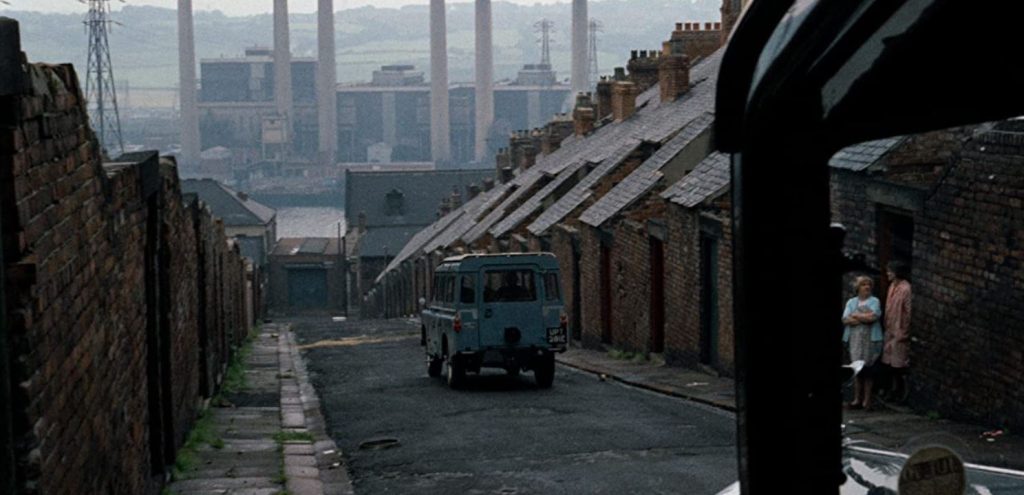
Get Carter remains a fave, a bleak foray into porn, familial ties, corruption, contract killers, revenge and pollution all set in a decaying city. Often hailed as one of the greatest British gangster movies, it’s the viewing equivalent of a kick in the solar plexus from a dirty, steel toe-capped boot. Amazingly, it was assembled by a youngish writer-director by the name of Mike Hodges. Christ, if the guy could put out a first-time effort this good before he was even forty, surely, he’d only get better?
Alas, no.
Despite a further eight goes behind the camera, 1971’s Carter turned out to be his nasty masterpiece. Hodges died at the end of 2022, his body of movies adding up to what I’ve ever so amusingly called Hodgespodge. The writing was on the wall with the immediate follow-up (and box-office disaster), Pulp. Supposedly a comic thriller, it shares similarities with Carter in that Hodges wrote it, Michael Caine is back on board, and there’s gunplay on a beach. However, it’s neither funny nor thrilling. To be polite, it’s a fucking boring mess. Caine plays a pulp fiction writer drawn into some shenanigans involving a mystery celebrity and… Well, I’ll let Caine try to explain during one of his interminable voiceovers: “This story was like some pornographic photograph: difficult to work out who was doing what and to whom.” In Carter Caine stalked the badlands of Newcastle like a seething reptile; in Pulp he wanders around Malta looking distracted and/or mildly embarrassed. If you can think of a worse directorial follow-up to a classic, please name it.
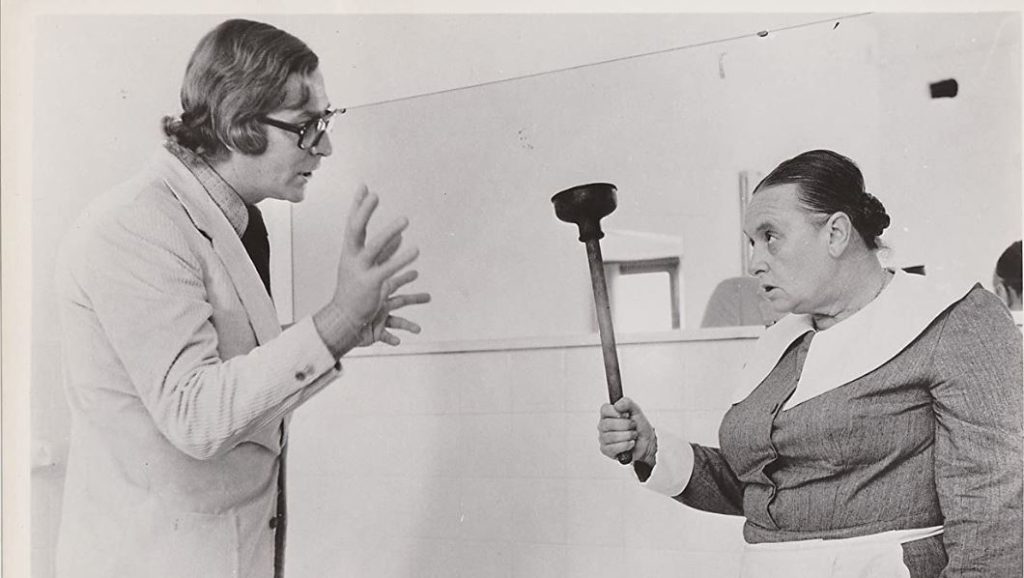
Hodges then veered sharp left and had a go at sci-fi with The Terminal Man and Flash Gordon. The first is a chilly, insubstantial film full of slow, irrelevant scenes. George Segal plays a brain-damaged man whose injury has resulted in seizures and violence. He’s now a paranoid psychotic ‘afraid of machines and afraid that men will be turned into machines,’ although he still agrees to have a computer implanted in his malfunctioning noggin. This technophobic idea is woefully underdeveloped in Hodges’ script and merely results in our miscast, zonked-out hero wandering around in a silly wig. Its best scene involves a woman in a sheer white nightdress being robotically stabbed to death on a waterbed to the soothing strains of Bach. Apart from that, it’s a strange, uninvolving affair in which Hodges keeps a pronounced distance from his characters.
Terminal Man was an attempt at hard sci-fi, but 1980’s Flash saw Hodges flee to the genre’s opposite end with a barely believable slice of intergalactic cheese. It’s the sort of OTT flick that either makes you throw your hands up and wander off in search of something competent or merrily go along with its comic book absurdities. Riddled with poor performances, exposition, crappy special effects and lousy attempts at humor, it’s impossible to suspend disbelief. Somehow it wasn’t made by Cannon because it would sit fine alongside such campy crap as Masters of the Universe.
At least Flash made a bit of money in the UK, but Hodges crashed back to Earth with 1985’s Morons from Outer Space, a desperately stale sci-fi comedy devoid of anything approaching humor. At this point in his directorial career, it has to be said that Carter looked increasingly like a fluke. Hodges needed to pull a rabbit out of the hat, perhaps sensing it might be wise to get back in touch with the harsh, gritty material that put his name on the map sixteen years earlier.
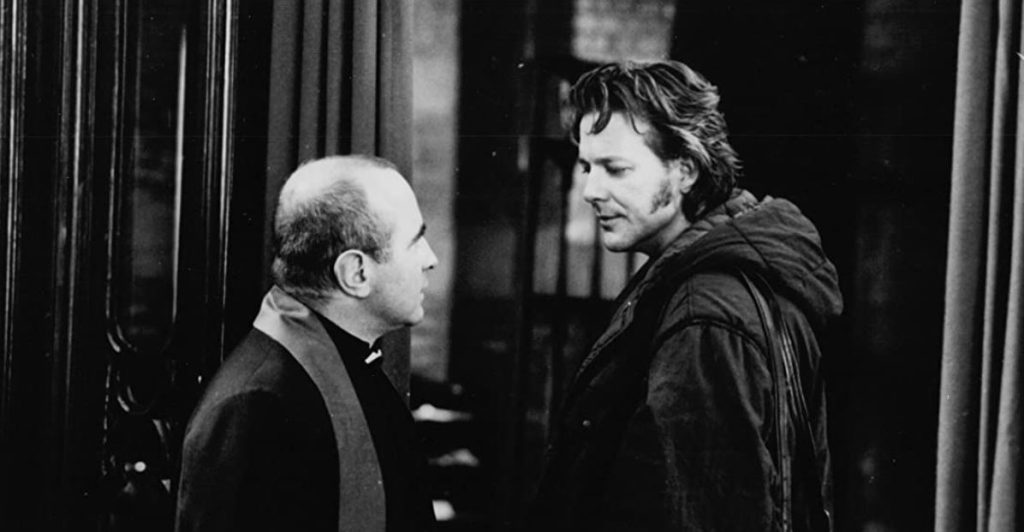
On paper 1987’s A Prayer for the Dying seemed like a good choice. After all, it’s about an IRA terrorist who inadvertently blows up a school bus in Northern Ireland, throws in the towel, and then gets entangled with gangsters. What’s more, Hodges managed to hook Mickey Rourke to play the lead, an actor who was hot following the controversies of 9½ Weeks and Angel Heart. Co-star Bob Hoskins had also caused cinemagoers to sit up and take notice with his multi-award-winning turn as an ex-con chauffeur of a ‘thin black tart’ in the excellent Mona Lisa. Would Prayer prove a turning point for Hodges or would the daft bugger piss on his feet again?
Well, in a nutshell, the critics savaged it and it died at the box office. However, unlike boring duds such as Pulp and Morons, I find Prayer strangely watchable. Admittedly, this is not because Hodges gets things right, but more to do with the way he mixes juicy subject matter like religion, politics, violence, morality, redemption and assorted nonsense.
As mentioned, a guilt-ridden Rourke turns his back on the ‘glorious cause’ after his school bus faux pas and flees to London. For some baffling reason a crime boss not only knows of his whereabouts, but insists on hiring him to kill a rival gangster in return for an American passport and fifty grand. Rourke’s own people mysteriously want him dead while the useless police couldn’t catch this ‘hunted animal’ unless he walked into the nearest cop shop with both hands tied behind his back. As you can probably tell, plausibility is not Prayer’s strongpoint. I mean, who’s ever heard of a London crime boss hiring an IRA assassin? Don’t such scumbags have their own contacts for such dirty work? Saying all that, I do have a soft spot for this barmy flick, especially:
The cast: The chain-smoking Rourke, armed with his trusty sawn-off double-barrelled shotgun throughout, is fine. Some take umbrage with his Irish accent, but Prayer is another of those frustrating moments where you can see his talent is bigger than the project he’s taken on. If he’d chosen more wisely/had more luck, he could have been the next De Niro.
Best line: “All this killing… It seems to follow me about.”
Hoskins as a sincere Catholic priest. He witnesses Rourke executing a mobster in his church cemetery. Yes, I know, Hoskins playing a priest. But wait, there’s more. He’s an ex-SAS priest. A flick like Who Dares Wins has already shown us that any member of this elite fighting force is half-man, half-lion. Since when did they start letting in tubby little men?
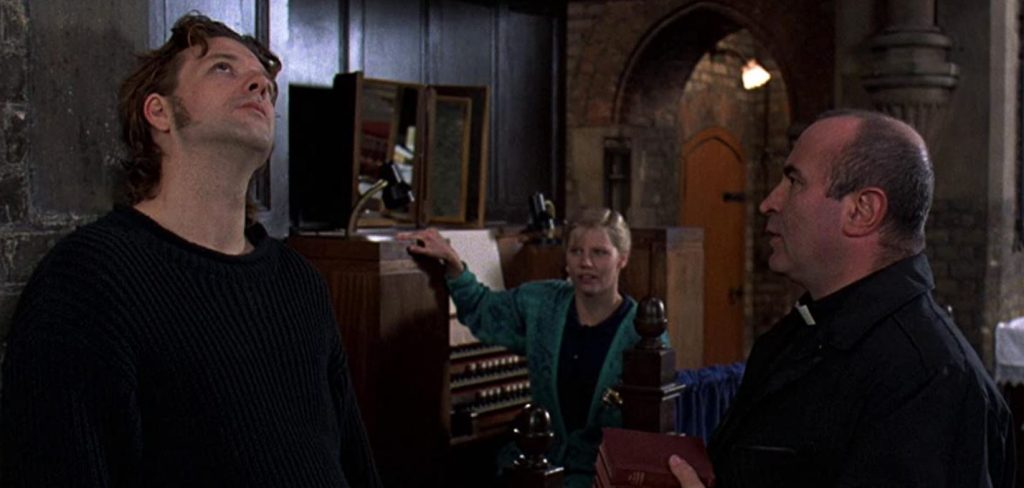
Best line: “If you choose to murder people,” he tells Rourke, “you may no longer consider yourself a member of the Catholic Church.” Hmm, mate, for a priest you sure as shit don’t have much knowledge of how Catholicism has operated for two thousand years.
Alan Bates as a smartly dressed, courteous gangster boss/undertaker who’s usually far more respectful to the dead than the living. Bates seems to know the material isn’t very good and adjusts his performance accordingly, deciding to have fun instead. And so, he’s nice to grieving old ladies, takes great pride in his facial restoration work, and isn’t embarrassed to publicly reveal his cash-stricken mum used to hump ‘perfect strangers’ outside pubs for five shillings a time. Of course, being a gangster, he does like to dish out a bit of aggro. If you steal from him, he will pin your hands to the wall. Bates’ enjoyable, tongue in cheek performance is one of Prayer’s strengths.
Best line: “It wasn’t even dark.” Bates expresses his sadness about the rape and murder of a young woman as he prepares to make her beautiful again.
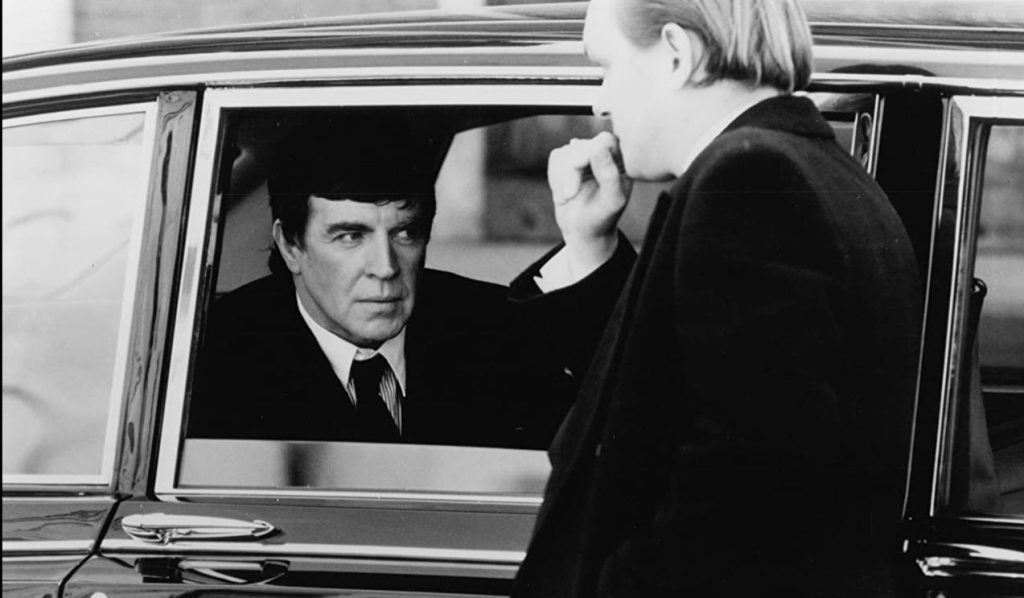
Christopher Fulford as Bates’ bluster-filled, misogynistic younger brother. Fulford is an excellent example of a TV actor that wandered onto a movie set and somehow didn’t get thrown off. He has one expression here and that’s a scowl. Somehow, he thinks a combination of this glare, a slicked back hairstyle and some angry gesticulating is enough to convince people he’s mean. Mind you, he can act tough with the ladies, as exemplified by a sexual assault upon a brothel madam. This crude display angers Rourke, forcing him to grab the hapless Fulford by the earlobe and lead him away like he’s six years old.
Best line: “I do what I fucking want when I fucking want!”
Sammi Davis as Hoskins’ blind niece. Davis, like just about all movie blind girls, is super-nice, sincere and weirdly upbeat. And, of course, it takes her an entire two conversations to fall in love with Rourke after he shows he’s a dab hand with the church organ.
Best line: “I think he’s a very gentle, understanding man.” This appraisal brushes aside her knowledge Rourke is an experienced killer, suggesting blind girls are just as susceptible to bad boy charm as their seeing counterparts. Witness the brothel madam, obviously grateful for her chivalrous rescue to the point her snatch is nearing ignition point. After admiring a tattoo on Rourke’s arm, she places a hand between his legs and asks: “Have you got one down here?”
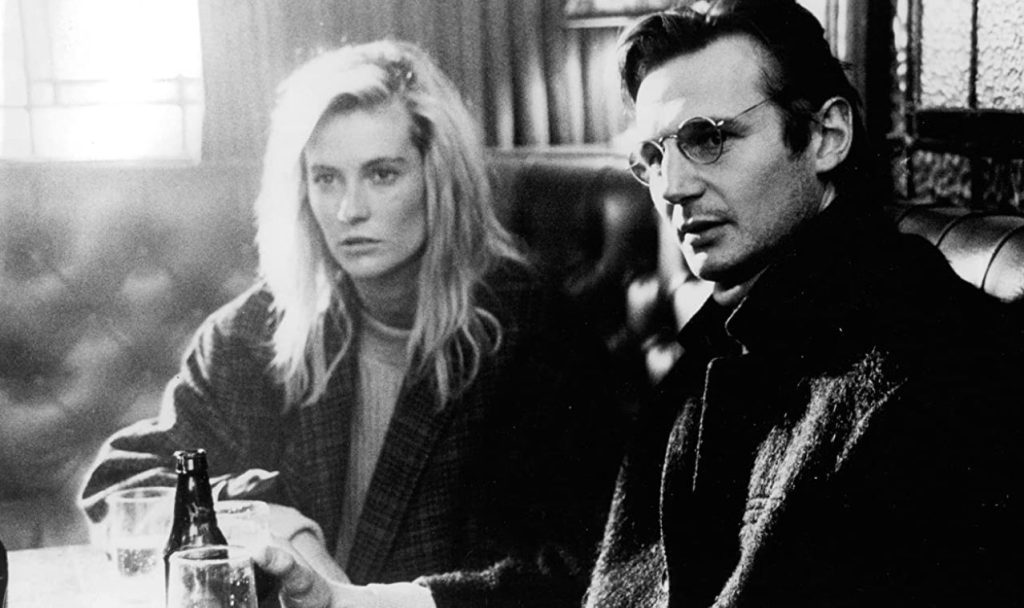
A pre-stardom Liam Neeson as a redundant IRA man. Believes Rourke is a ‘danger to the movement’ since the botched bombing. Poor old Neeson. He has nothing to do, except look pained while trying to persuade Rourke to return to Northern Ireland. His role makes no difference to anything. Don’t worry, mate, the parts will get better.
Best line: “Thanks for putting me in this predicament.” I think this was ad-libbed with Hodges in mind.
A rubbish fight: Hoskins’ church is desecrated by some spray-painting, fire-starting hooligans. Bates, of course, is behind the kerfuffle. When the cardigan-wearing Hoskins challenges him in a pub, three goons take him outside to administer a pasting, except Hoskins goes all Sonny Corleone with a dustbin lid. Daftness reigns supreme as Bates’ men fail to get one punch in. Still, it has to be said that Bates does surround himself with particularly ineffective hard men. From his driver to his brother, they all get done over at some point. A couple even end up nude and humiliated. How do you become a crime lord when your hired help is so bad?
Then again, Rourke is no slouch when it comes to incompetence. At the start he spectacularly cocks up a British Army bombing before carrying out a graveyard hit unaware that both a priest and one of Bates’ men are in the cemetery looking on. If the Harlem Globetrotters had also been passing through, I suspect he might not have noticed.
The worst rape attempt of all time: Before I watched Prayer the worst attempted rape, I’d seen was Kris Kristofferson as a biker in the otherwise terrific Bring Me the Head of Alfredo Garcia. He gatecrashes a picnic, pulls a gun and leads a woman off to do the bizzo. He rips through her top, slaps her and then… wanders away to sit in the long grass. The topless woman is so confused by his apathy she follows him. Don’t her nice big tits do anything for him? Then her old man turns up and puts two bullets in the still sitting Kristofferson. Frankly, he deserved such a fate for giving all those honest, hardworking rapists out there a bad name.
Fulford, however, makes an even bigger twat of himself. Initially, he goes down the guffawing route, taking time out to spray-paint the blind girl’s face while obviously savoring his imminent conquest. As she tries to flee in her nightie bumping into walls and stuff, he follows her around her house singing Three Blind Mice. In other words, all good so far. He gets her in the darkened living room before contriving to get stabbed in the stomach by a pair of scissors. There’s incompetence, there’s macho bluster, and then there’s not only failing to overpower a blind girl but getting done in by her. Doubly pathetic. Fulford would have to be one of the most rubbish gangsters ever. His only success was snarling, swearing and finger pointing which, I imagine, doesn’t impress you much.
In short, A Prayer for the Dying is goofy fun but a long way from a directorial return to form, even if I did enjoy the heavily metaphoric scene in which a terrified Rourke clings to a giant suspended crucifix. However, Prayer is infinitely preferable to Hodges’ next effort, 1989’s little seen Black Rainbow. This one is a boring, jumbled mess about a psychic and her alcoholic dad. Not even the welcome sight of Rosanna Arquette’s bare breasts can save it. Much better is Croupier, a casino-flavored flick that followed almost a decade later. Clive Owens is our titular character, a cynical, vaguely sociopathic, wannabe novelist who ends up dealing blackjack and spinning the roulette wheel. His interior monologue gives everything a noir tinge. Just listen to him after he’s beaten a punter at blackjack: “A wave of elation came over him. He was hooked again, watching people lose.” Hodges proceeds surely with a top-notch supporting cast, full-frontal nudity, and a simmering sense of enigma. Croupier is mostly good, making it his second-best movie.
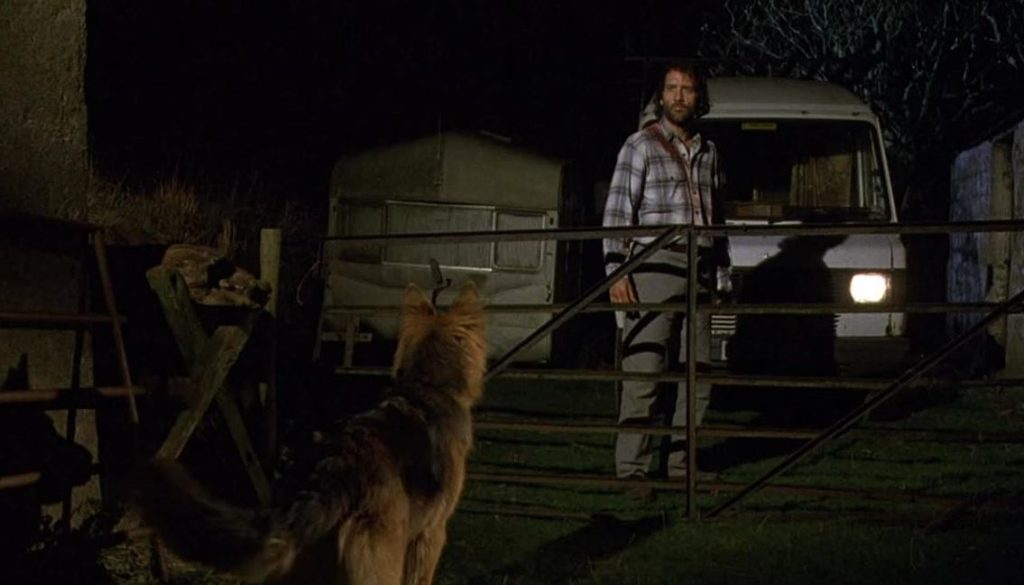
In 2003 Hodges came full circle with his final film, I’ll Sleep When I’m Dead. It’s a moody crime pic that centers on a gangster returning to his hometown to investigate his brother’s death. Sound familiar? Sadly, it’s nowhere near as good as his debut, but Hodges makes a fair fist of things in the opening twenty minutes. Here we get minimal dialogue, a badly beaten guy being pissed on, heroin labelled a ‘cunt’s drug’, and that reliable nut job Malcolm McDowell dragging a cocksure, drug-dealing wide boy off the streets and wordlessly launching into a bout of anal rape. I’ll Sleep begins to drift in its second half, though, let down by a lack of action, a curdled romance, lots of loose ends and a central performance that can’t hold a candle next to Michael Caine’s reptilian panache.
No matter. Hodges gave us Get Carter and for that I’ll be forever grateful.